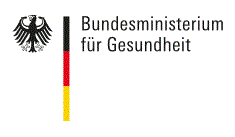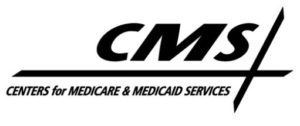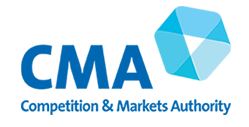- Germany’s drug pricing amnesty reset risks pharma backlash (fiercepharma.com)
Germany’s strict drug pricing controls may be about to get a whole lot harsher as the country’s government is mulling over whether to lift a lucrative pricing amnesty...The current system sees healthcare insurers in the country negotiate discounted prices with pharma companies on their new meds--but the German government has for some time allowed those insurers to pay full price for the latest drugs up to a year from the time they win regulatory approval...following consultations with pharma companies, the health ministry said it would draw up new plans in the coming months to limit prices for new drugs and halt this one-year amnesty...Under this proposal drugmakers could still charge full price for new drugs--but it would mean health insurers would be able to start negotiating discounts once a drug’s sales hit around €250 million ($282 million)--a fairly low limit for blockbuster meds that can easily make two to three times that amount...Germany is struggling to pay its healthcare bills. Despite the efforts of the government to curb pricing, total expenditure in Germany’s statutory health sector rose 19.7% to €202 billion ($228.4 billion) in 2015 from 2011--with prescription-drug spending alone jumping 27.1% over the past 5 years...
- Hospital groups, Congress laud delay of star-rating data (fiercehealthcare.com)
Hospital groups and lawmakers hailed a federal agency's decision Wednesday to delay the release of its new star ratings until July...The Centers for Medicare & Medicaid Services, bowing under industry and Congressional pressure, announced...that it would postpone the launch date, scheduled for today...until at least July...The ratings, which will measure hospitals on a five-star scale, are based on 113 measures of inpatient and outpatient quality derived from the Hospital Consumer Assessment of Healthcare providers and Systems survey. Quality measures are grouped in seven categories, giving higher weight to mortality, safety of care, readmissions and patient experience than effectiveness of care, timeliness of care and efficient use of medical imaging...The overall star rating is meant to give consumers an easy metric that they can use to shop for the best care...many industry watchers worried that the data doesn't provide an accurate picture of hospital quality care because it fails to consider patients' socio-demographic status. As a result, some of the nation's most prestigious hospitals that treat lower-income patients may unfairly receive lower star ratings...The delay, he said, was necessary so that hospitals and health systems can work with CMS to improve the rating methodology by taking socio-demographic factors into account...
- FDA pulls approvals on AbbVie’s ex-blockbuster heart meds (fiercepharma.com)
Years after two AbbVie cholesterol-fighting combos were approved, the FDA has decided they shouldn’t be on the market. The agency pulled approvals on combination pills Advicor and Simcor altogether, and revoked approvals for Niaspan (niacin) and Trilipix (fenofibric acid) alongside standard statin therapy...The agency said its decisions stemmed from "collective evidence from several large cardiovascular outcome trials." The combination therapies delivered no CV benefits in those trials... There is no evidence for any meaningful benefit for addition of niacin or fibric acid derivatives to statins...All four of the brands are off patent, and with generics in the mix, AbbVie’s lipid drug sales had already taken a big plunge. The dyslipidemia franchise brought in just $179 million last year, down from more than $1 billion in 2013, when Trilipix and Niaspan went off patent...We might ask, why were the indications for these drugs granted in the first place?...This shows how far we have come in the evaluation of lipid-lowering drugs. It is now firmly established that improvements in the simple lipid profile are not enough, and that clear evidence of benefit on clinical outcomes is needed for routine use of lipid-lowering drugs as add-on to statin therapy.
- CMS reportedly proposes 2-year ban of Theranos founder Holmes, revocation of lab’s license (biopharmadive.com)Walgreens Is Reportedly Taking Steps to Dump Theranos (fortune.com)
Centers for Medicare and Medicare Services is reportedly proposing to ban Theranos founder Elizabeth Holmes from owning or operating a laboratory for two years, along with revoking the license of Theranos' Newark, CA lab...Theranos had ten calendar days from receiving the notice to explain to CMS why the sanctions should not be imposed on Holmes and the company...The proposed sanctions stem from a number of key deficiencies CMS found in inspections last fall. Theranos had sent in a correction plan for the deficiencies but the regulator found it to be not credible.
- China Eases Path for Foreign Drugmakers’ Hepatitis C Treatments (nasdaq.com)
China will grant four global drug companies priority-review status to launch groundbreaking new hepatitis C treatments in China, a rare move to open the lucrative market to foreign players...China's Food and Drug Administration expedites domestic drug applications to encourage innovation. But its lengthy drug-approval process for foreign companies means none of the direct-acting antiviral agents that have been shown to cure more than 90% of hepatitis C patients within a few months have been approved in China, which has among the highest rates of the disease in the world with an estimated 10 million people infected...It shows that the CFDA is serious about prioritizing important new innovative medicines that address real unmet medical need or improve substantially on what's currently available, whether they originate in domestic or [global] pharma companies...The policy also encourages foreign companies to manufacture drugs in China, saying companies will qualify for priority treatment if they submit applications for approvals in China simultaneously with U.S. and European Union approvals and use the same production standards as in those markets.
- Part B Drug Proposal Has Winners and Losers Alike (medscape.com)
Last month, a coalition of more than 300 medical societies, patient advocacy groups, and others asked Congressional leaders in a letter to help kill a proposal for changing how Medicare pays for drugs administered in clinical settings...They contend that under the less favorable terms of the new plan, many of their members would no longer be able to afford administering drugs in their offices that preserve a patient's eyesight, mobility, or life. As a result, those treatments would shift to a costlier hospital outpatient setting, and thus become unaffordable for many patients...Missing from the list of signatories, however, were societies for family physicians, internists, orthopaedic surgeons, and cardiologists. That might not be surprising: Their members stand to earn more money — for family physicians, more than 40% more — by administering drugs to Medicare patients...Medicare policy promises to make some physicians financial winners and some financial losers...
- Pfizer delay, alleged price gouging earns wrath of British watchdog (fiercepharma.com)
In case anyone thought it was just the U.S. where pharma has been accused of hiking prices, the U.K. has been quick to remind everyone it happens across the pond as well, after hitting Pfizer with a £10,000 ($14,100) penalty this week...What for? Technically, because it was late to submit documents demanded by the country’s Competition and Markets Authority --but in reality, this all revolves around one thing: pricing, and this is just the warm up act ahead of the watchdog’s bigger decision this fall--which could see Pfizer with a fine in the billions of pounds...in September of that year (2012) the drug (phenytoin sodium) lost its patent, and Pfizer sold it to Stevenage...while several other drugmakers also sold their generic versions. Cue a massive spending hike: the NHS paid £50 million for the drug in 2013, and £40 million in 2014. This left the pricing watchdog scratching its head: aren’t generics supposed to be cheaper?...The CMA is still sifting through all the documents and will come to a decision in August on whether Pfizer did abuse its market position. The maximum fine for this is a far more substantial 10% of its global turnover--which would work out as $4.89 billion based on last year’s revenues.
- Feds issue new standards for Medicaid insurance plans (medicalxpress.com)
The Obama administration...set new standards for Medicaid private insurance plans, which in recent years have become the main source of coverage for low-income people...The rules apply to insurers operating as Medicaid middlemen in 39 states and Washington, DC. Each state runs its own program, although the federal government pays most of the cost. Private insurers now provide coverage to about two-thirds of the more than 70 million Medicaid recipients...the rules specify that insurance companies must guarantee access to certain types of service providers, and that at least 85 percent of what insurers get paid must be spent on medical care. They also envision a quality rating system to help Medicaid recipients pick a plan...The regulation issued Monday is more than 1,400 pages long, and it will take time for states, consumer advocates, and insurers to assess all its implications. The changes start to take effect next Jan. 1, and will take years to fully put into place.
- Europe’s new trade secrets rule sparks debate over drug safety (statnews.com)
...the European Parliament...formally approved new rules to help companies protect their trade secrets. The move creates a framework for the European Union in which companies can take legal action against someone who allegedly steals confidential information...The rules...were devised in response to longstanding complaints by corporations that Europe lacks a uniform approach to dealing with the theft of trade secrets...harmonization should allow the creation of a safe and trustworthy environment for European companies, which will see their intangible assets and know-how secured...the rules, known as the Trade Secrets Directive, are sparking sharp protest from numerous organizations that claim the effort may jeopardize the legal rights of whistleblowers and others that attempt to disclose alleged wrongdoing by corporations
- China says 202 detained in vaccine scandal (reuters.com)
A total of 202 people have been detained in connection with a scandal over an illegal black market vaccine ring, the Chinese government said...as it vowed to improve supervision of the market...The case, involving millions of illegal trades of vaccines through a black market drugs ring, has ignited public ire and underscored regulatory weaknesses in the world's second largest pharmaceuticals market...The State Council...said in a report 202 people had now been detained, with 357 health and regulatory officials receiving administrative punishments...The supervision and regulatory system would be tightened, the State Council said, with better record keeping for the production, storing and transport of vaccines and tougher punishments for lawbreakers...The scandal has stirred angry debate, casting a shadow over government ambitions to bolster the domestic drug industry and underlining the challenge it faces to regulate a widespread and fragmented medicine supply chain.










